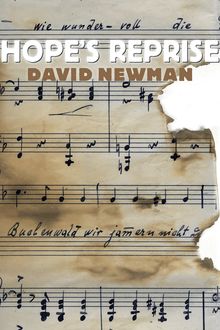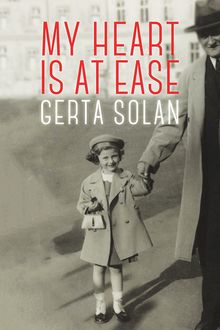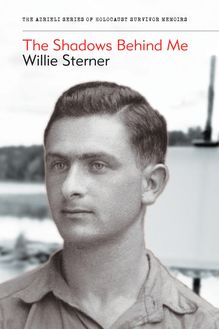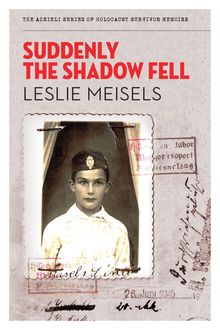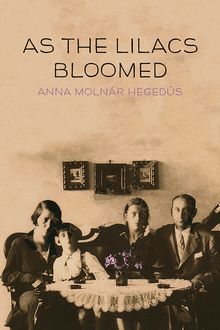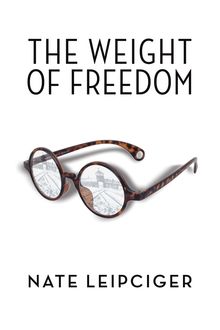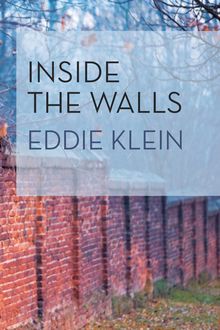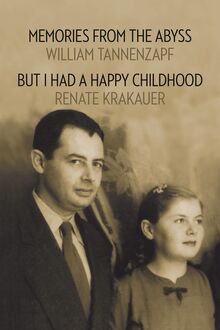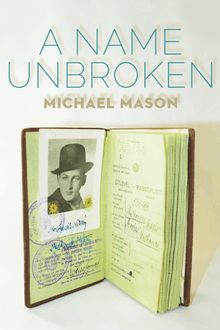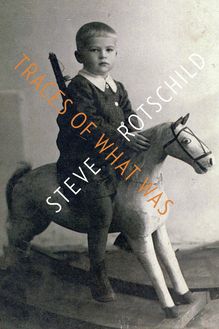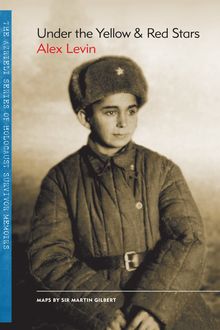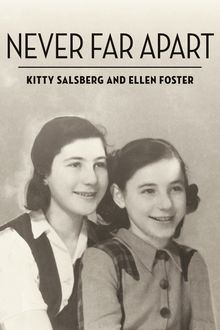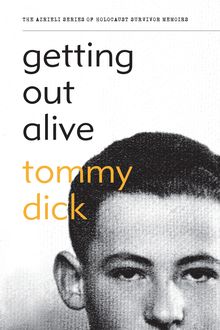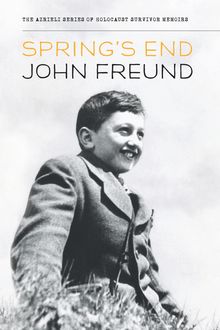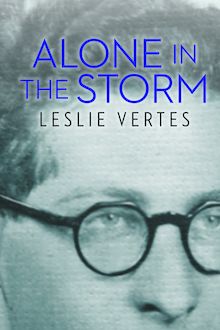Spring's End , livre ebook
72
pages
English
Ebooks
2007
Vous pourrez modifier la taille du texte de cet ouvrage
Obtenez un accès à la bibliothèque pour le consulter en ligne En savoir plus
Découvre YouScribe en t'inscrivant gratuitement
Découvre YouScribe en t'inscrivant gratuitement
72
pages
English
Ebooks
2007
Vous pourrez modifier la taille du texte de cet ouvrage
Obtenez un accès à la bibliothèque pour le consulter en ligne En savoir plus
Publié par
Date de parution
01 septembre 2007
Nombre de lectures
3
EAN13
9781897470909
Langue
English
Publié par
Date de parution
01 septembre 2007
Nombre de lectures
3
EAN13
9781897470909
Langue
English
Spring’s End
John Freund
The Azrieli Series of Holocaust Survivor Memoirs
Naomi Azrieli, Publisher
Jody Spiegel, Program Director
Arielle Berger, Managing Editor
Farla Klaiman, Editor
Elizabeth Lasserre, Senior Editor, French-Language Editions
Aurélien Bonin, Educational Outreach and Events Coordinator, Francophone Canada
Catherine Person, Educational Outreach and Events Coordinator, Quebec region
Tim MacKay, Digital Platform Manager
Susan Roitman, Executive Assistant and Office Manager (Toronto)
Mary Mellas, Executive Assistant and Human Resources (Montreal)
Mark Goldstein, Art Director
François Blanc, Cartographer
Bruno Paradis, Layout, French-language editions
Contents
Series Preface: In their own words...
About the Glossary
Introduction
Epigraph
Chapter One
Chapter Two
Chapter Three
Chapter Four
Chapter Five
Chapter Six
Epilogue
Glossary
Photographs
Copyright
About the Azrieli Foundation
Also Available
Series Preface:In their own words...
In telling these stories, the writers have liberated themselves. For so many years we did not speak about it, even when we became free people living in a free society. Now, when at last we are writing about what happened to us in this dark period of history, knowing that our stories will be read and live on, it is possible for us to feel truly free. These unique historical documents put a face on what was lost, and allow readers to grasp the enormity of what happened to six million Jews – one story at a time.
D avid J . A zrieli , C.M., C.Q., M.Arch Holocaust survivor and founder, The Azrieli Foundation
Since the end of World War II , over 30,000 Jewish Holocaust survivors have immigrated to Canada. Who they are, where they came from, what they experienced and how they built new lives for themselves and their families are important parts of our Canadian heritage. The Azrieli Foundation’s Holocaust Survivor Memoirs Program was established to preserve and share the memoirs written by those who survived the twentieth-century Nazi genocide of the Jews of Europe and later made their way to Canada. The program is guided by the conviction that each survivor of the Holocaust has a remarkable story to tell, and that such stories play an important role in education about tolerance and diversity.
Millions of individual stories are lost to us forever. By preserving the stories written by survivors and making them widely available to a broad audience, the Azrieli Foundation’s Holocaust Survivor Memoirs Program seeks to sustain the memory of all those who perished at the hands of hatred, abetted by indifference and apathy. The personal accounts of those who survived against all odds are as different as the people who wrote them, but all demonstrate the courage, strength, wit and luck that it took to prevail and survive in such terrible adversity. The memoirs are also moving tributes to people – strangers and friends – who risked their lives to help others, and who, through acts of kindness and decency in the darkest of moments, frequently helped the persecuted maintain faith in humanity and courage to endure. These accounts offer inspiration to all, as does the survivors’ desire to share their experiences so that new generations can learn from them.
The Holocaust Survivor Memoirs Program collects, archives and publishes these distinctive records and the print editions are available free of charge to libraries, educational institutions and Holocaust-education programs across Canada. They are also available for sale to the general public at bookstores. All revenues to the Azrieli Foundation from the sales of the Azrieli Series of Holocaust Survivor Memoirs go toward the publishing and educational work of the memoirs program.
•
The Azrieli Foundation would like to express appreciation to the following people for their invaluable efforts in producing this book: Todd Biderman, Helen Binik, Tali Boritz, Mark Celinscak, Mark Clamen, Jordana DeBloeme, Tamarah Feder, Andrea Geddes-Poole, Valerie Hébert, Joe Hodes, Sara R. Horowitz, Tomaz Jardim, Irena Kohn, Tatjana Lichtenstein, Carson Phillips, Randall Schnoor, Tatyana Shestakov, and Mia Spiro.
About the Glossary
The following memoir contains a number of terms, concepts and historical references that may be unfamiliar to the reader. For information on major organizations; significant historical events and people; geographical locations; religious and cultural terms; and foreign-language words and expressions that will help give context and background to the events described in the text, please see the Glossary .
Introduction
John Freund’s memoir, Spring’s End , recounts John’s life from early childhood in a close and loving family, through the harrowing experiences that took him to Theresienstadt, to the Czech Family Camp in Auschwitz, through death marches, to liberation and rehabilitation and, finally, to sanctuary and a new life in Canada. It is a story of survival, a story of the life of a young man who witnessed much evil and the loss of everything he held dear. It is also a story of hope and regeneration, of the will to live and to honour his parents and his upbringing by becoming educated, learning a profession, raising a family and being a proud citizen in a new land.
John Freund was born in 1930 into an educated, established family in Č e ské B udějo v ice, located about one hundred miles south of Prague, in the southern part of Bohemia, a province of Czechoslovakia. At the time of John’s birth, Č e ské B udějo v ice was a prosperous town of about 50,000 residents, including a Jewish community of 1,138. John’s father, Gustav, was a well-regarded and devoted pediatrician. His family was, as John put it, “well-rooted” in Č e ské B udějo v ice; for generations they had been judges, teachers and men of business. John’s mother, Erna, had grown up in the Czech town of Pisek and had received an exemplary education; she instilled in her two sons, John and Karel, a love of literature and music. The extended family on both sides – musicians, scientists, publishers, bankers and senior civil servants – lived in Vienna and Prague.
For John, life before the war was filled with the joys of childhood – soccer, school and the mischievous behaviour of little boys. Summers were spent at a farm in a nearby village enjoying the freedoms of country life – swimming, bicycling and hiking in the forests. In his early years in school, John was the only Jewish child although, as he writes, “I was not very aware that, because I was Jewish, I was different from others.” John’s family, like many, identified itself as “strongly Czech” although his grandfather, Alexander Freund, insisted that his grandchildren receive a Jewish religious education. The effort to integrate a religious, cultural and national identity for the Freund family – and other Czech Jews – was not easy. John writes of his grandfather’s sentiments in 1927 that although it had been “recommended that he become baptized to improve his career, he refused to give up his Jewish religion.” It was a time when Jews were accepted into professions and into society as long as they stopped being Jews. Many chose this option to further their position and their security in life; many chose to continue to live as Jews.
Czechoslovakia was created as a nation in 1918 at the end of World War I , carved out of the collapse of the Austro-Hungarian Empire. Its first president, Tomáš Masaryk, created a democratic constitution and society, but with the worldwide economic collapse in 1929, the Czech minorities – Ruthenes, Slovaks, Hungarians, and the German-speaking people of the Sudetenland – pressed for greater autonomy. Nazi Germany exploited this instability to further its territorial ambitions. In March 1938, Germany annexed its neighbour, Austria; in October 1938, with the approval of Britain and France, the Germans marched into the Sudetenland area of Czechoslovakia. Five months later, Germany annexed the Czech provinces of Bohemia and Moravia, including the Czech capital, Prague, and John Freund’s hometown of Č e ské Budějo v ice.
Under German occupation, the lives of the Jews of Č e ské Budějo v ice changed dramatically. Public facilities, restaurants, cinemas and, most importantly for John, schools, once open to all, were immediately closed to Jews by German decree. John writes, “The pessimists thought one to two years and all would be back to normal; the optimists talked of weeks. It took six years and, for us at least, things never got back to normal.” John was nine years old.
Excluded from the general community, John and his Jewish friends found companionship and solidarity among their own. Trying to maintain a normal life, Jewish families set up schools in private homes and organized youth groups, believing that the worst was over. The community’s children spent the summers of 1940 and 1941 on a narrow strip along the Vltava River, which Jews were allowed to use for swimming and soccer and John’s favourite, ping-pong. John and his young friends started a magazine, Klepy (Gossip), hand-typed and illustrated with stories, art, jokes and incidents; only one copy of each issue was printed and carefully passed around. 1 At a time when the Jews of Poland were being concentrated in Polish ghettos under increasingly grim conditions, John and his mates “cherished each day and prayed that the summer of 1941 would never end. Except for a handful of us, it was the last summer.” John was eleven.
On April 18, 1942, a transport of 909 Jews from Č e ské Budějo v ice, including Gustav and Erna Freund and their sons Karel and John, was taken to the former Czech garrison town of Terezín, run by the Germans as a ghetto and transit camp and kno
